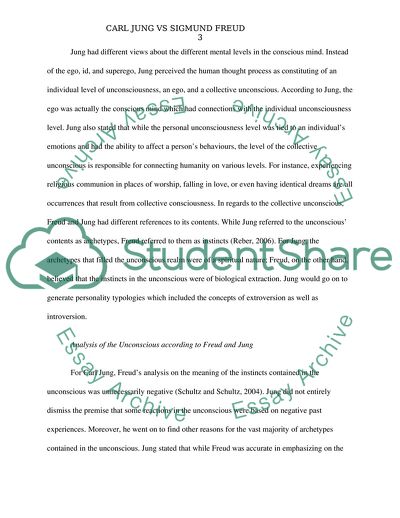Cite this document
(Carl Jung and Sigmund Freud's Theories of Human Behavior Essay Example | Topics and Well Written Essays - 1250 words, n.d.)
Carl Jung and Sigmund Freud's Theories of Human Behavior Essay Example | Topics and Well Written Essays - 1250 words. https://studentshare.org/psychology/1809220-carl-jung-vs-sigmund-freud
Carl Jung and Sigmund Freud's Theories of Human Behavior Essay Example | Topics and Well Written Essays - 1250 words. https://studentshare.org/psychology/1809220-carl-jung-vs-sigmund-freud
(Carl Jung and Sigmund Freud'S Theories of Human Behavior Essay Example | Topics and Well Written Essays - 1250 Words)
Carl Jung and Sigmund Freud'S Theories of Human Behavior Essay Example | Topics and Well Written Essays - 1250 Words. https://studentshare.org/psychology/1809220-carl-jung-vs-sigmund-freud.
Carl Jung and Sigmund Freud'S Theories of Human Behavior Essay Example | Topics and Well Written Essays - 1250 Words. https://studentshare.org/psychology/1809220-carl-jung-vs-sigmund-freud.
“Carl Jung and Sigmund Freud'S Theories of Human Behavior Essay Example | Topics and Well Written Essays - 1250 Words”. https://studentshare.org/psychology/1809220-carl-jung-vs-sigmund-freud.


